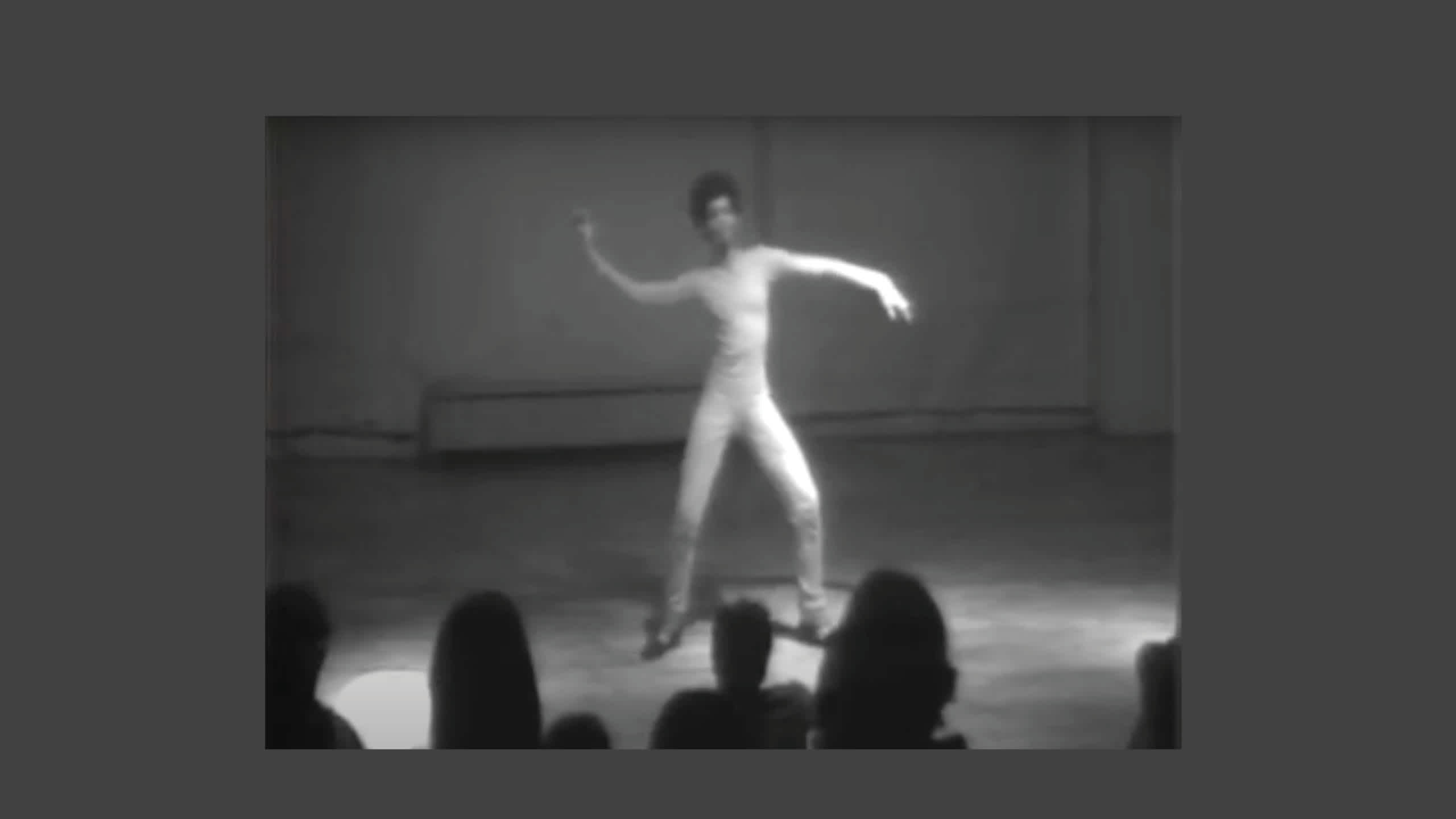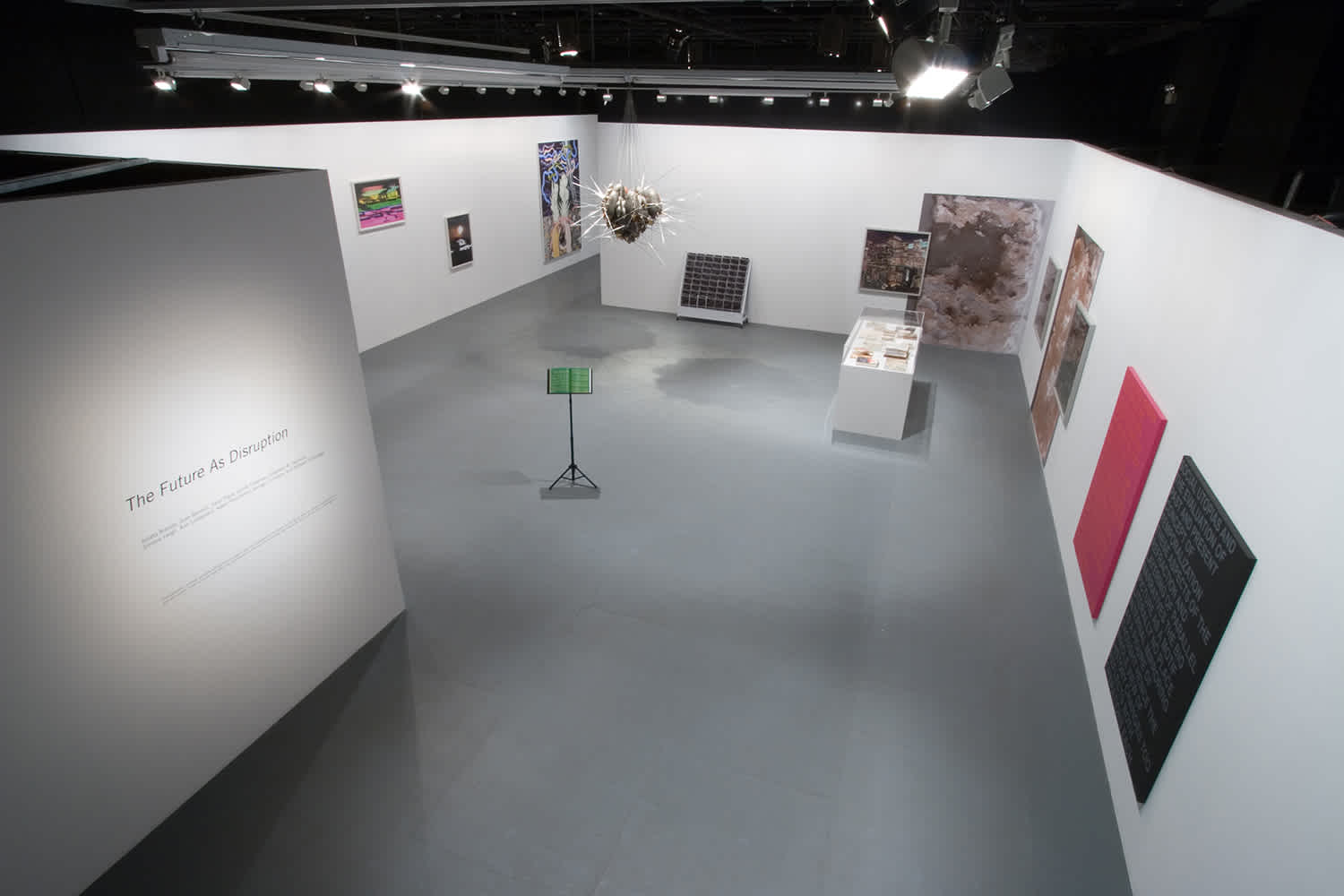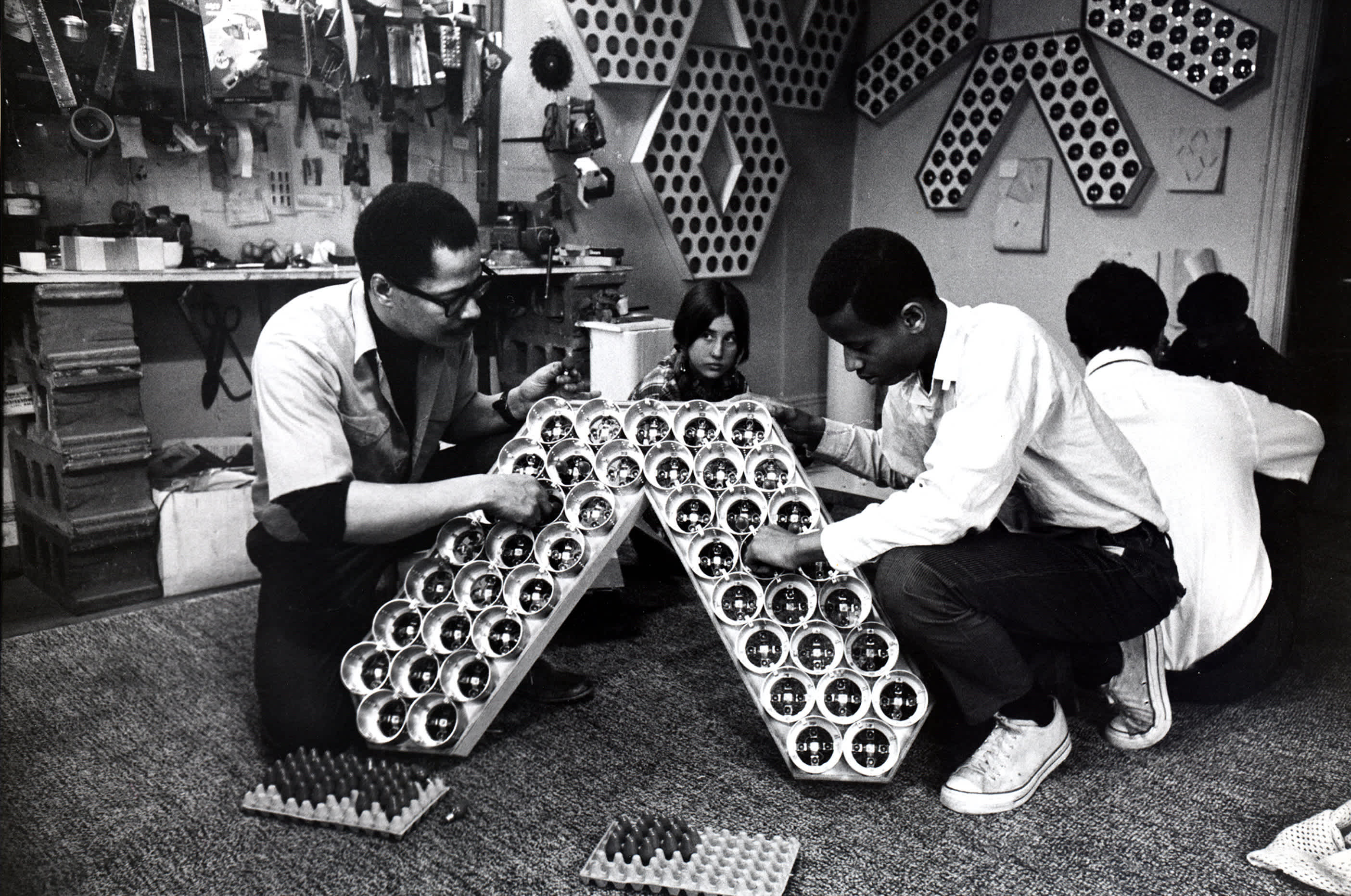
On View: October 15-December 19, 2024
Schomburg Center for Research in Black Culture (515 Malcolm X Blvd, New York, NY 10037)
Opening day hours:
Gallery hours: Free; Monday–Saturday, 10a-6p
Time:
Public Programs: December 10, 1–2:45pm & 6–8:30pm at the Schomburg Center for Research in Black Culture
The first of its kind internationally, Code Switch: Distributing Blackness, Reprogramming Internet Art is a multi-sited exhibition exploring and redefining the history of “Black data,” centering and celebrating contributions by artists of African descent to the rapidly advancing field of new media art and digital practice.
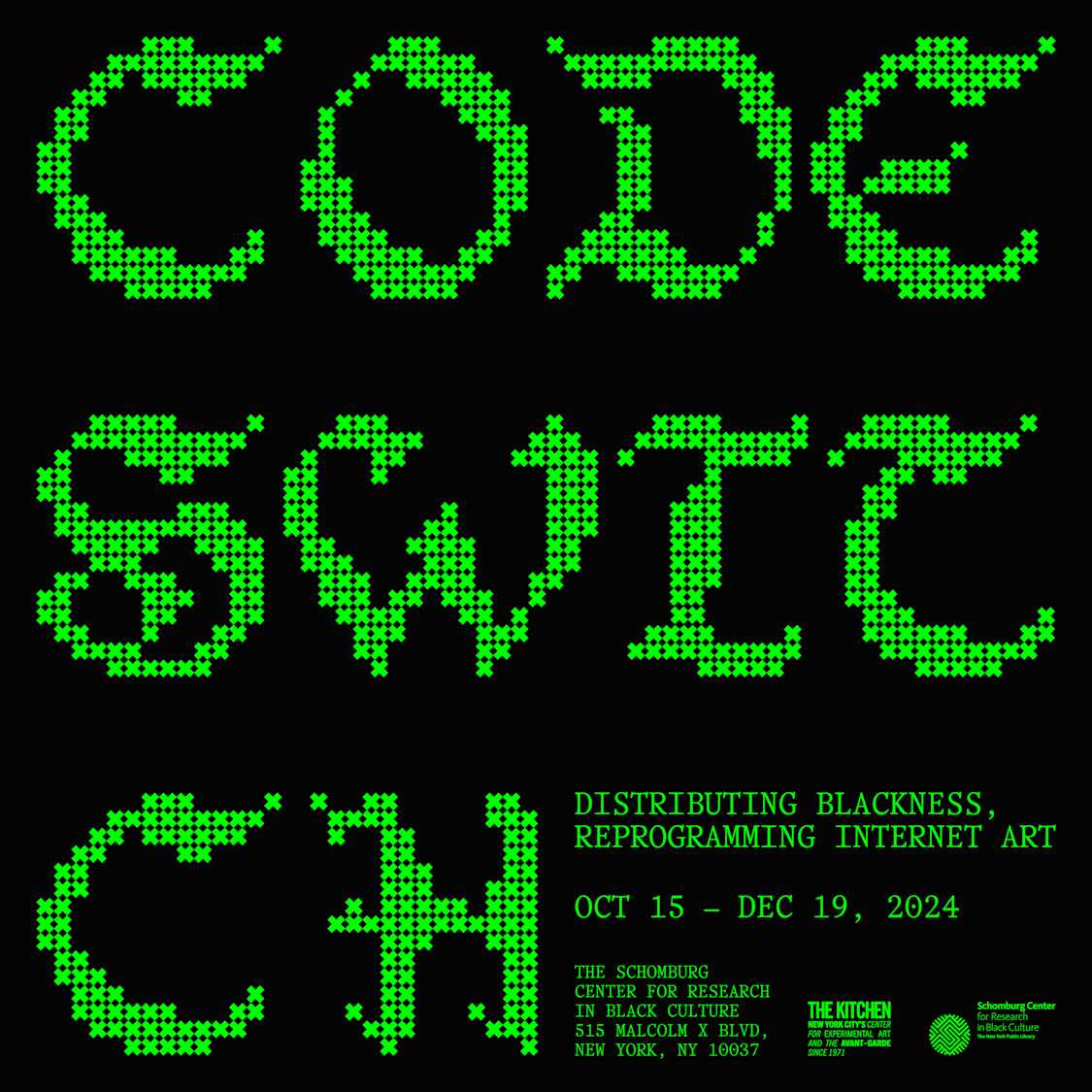
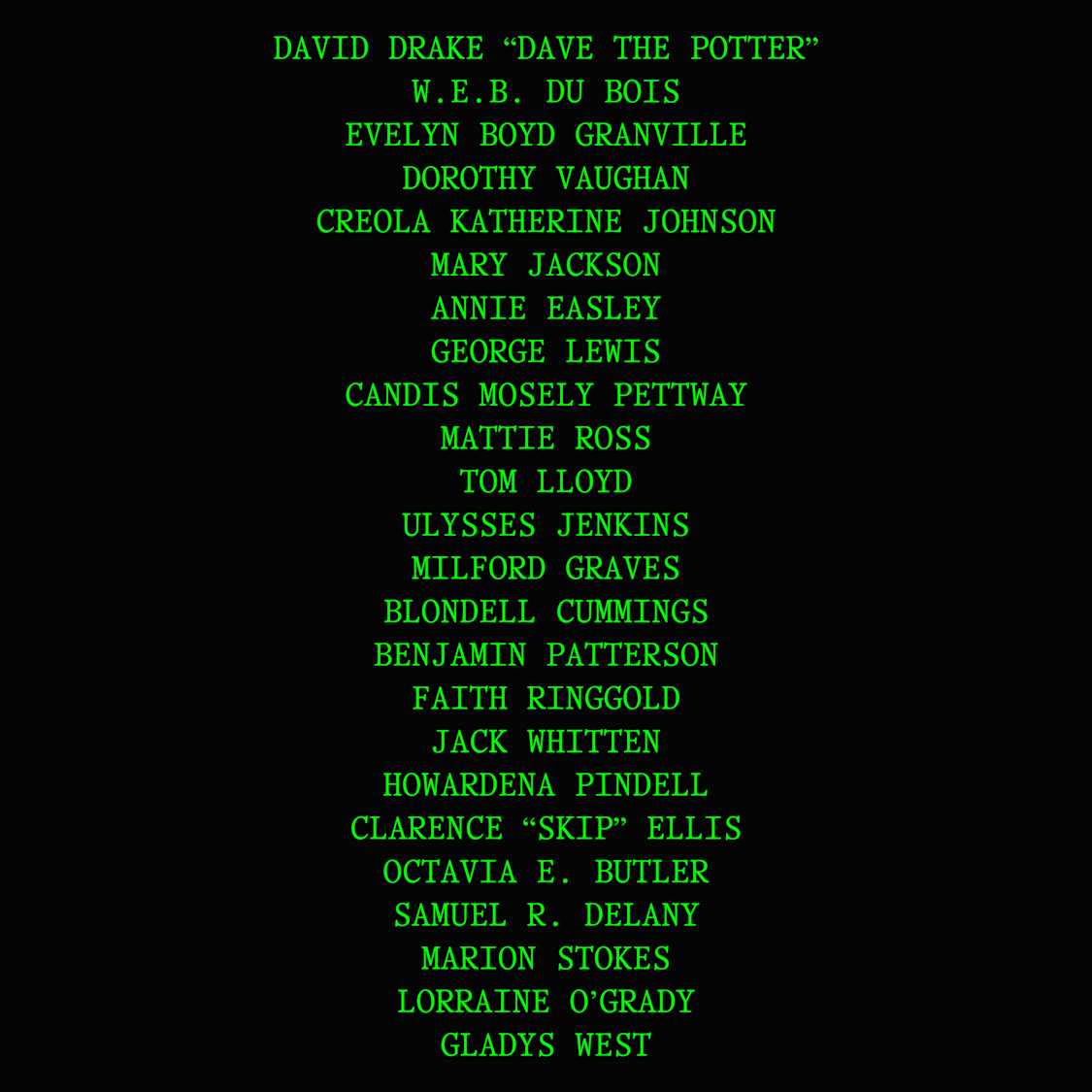
Drawing its title from André L. Brock’s groundbreaking text Distributed Blackness: African American Cybercultures (2020), the exhibition explores the relationship between Black cultural production and the legacy of computation as a mode of machinic engagement and creative inspiration. This exhibition will take on two components—the first part, a historic archival presentation as presented by The Kitchen in collaboration with The Schomburg Center for Research in Black Culture in Fall 2024; the second part, a contemporary group show, to take place Spring 2025 in partnership with the Museum of Contemporary Art Detroit (MOCAD).
The debut of this project’s “broadcast” at the Schomburg Center for Research in Black Culture marks an unprecedented collaboration between two storied New York institutions. From The Kitchen’s founding in 1971, the organization has remained a leading nexus for experimental artists; as part of its institutional history The Kitchen maintains a living archive of over 4,000 artists. Founded in 1925, The Schomburg’s mission is to preserve African American, African Diaspora, and African experiences; its research library is internationally renowned. These institutions are mutual sites ripe for interventions, discovery, memory-making, and decolonial praxis; this collaboration presents an opportunity for both institutions to further broaden their archives.
The archival exhibition at the Schomburg gathers and considers histories pre-and-post 1960, first carrying us from how data was collected and visualized before the presence of the computer as we know it today, to the invention of the first computing machines that set the stage for digital computers as we now know them. It ranges from W.E.B. Du Bois's 20th century hand-drawn charts and graphs representing Black contributions to American culture in colorful illustration; to the labor of Black “computers”—human programmers who played key roles in advancing the fields of programming, coding, and engineering—over time. Computer scientists, mathematicians, and engineers featured include Evelyn Boyd Granville, Dorothy Vaughan, Creola Katherine Johnson, Mary Jackson, Annie Easley, Gladys West, and Clarence “Skip” Ellis.
On view as well are rarely seen selections from the Harlem Youth Opportunities Unlimited (HARYOU). The first HARYOU report, titled “Youth in the Ghetto: A study of the consequences of powerlessness and a blueprint for change,” made data-driven, consciousness-raising recommendations and was published in 1964 following the Harlem uprisings.
The exhibition also turns toward the uneasy relationship between the origins of the Internet via its inception in 1969 as the government-funded intelligence initiative of ARPANET, and the complex dilemmas arising between advancements of technologies that redefine modernity and visual culture. It draws directly from the troubles of the past, and arcs forward to the challenges of our present day.
These considerations converge with the founding and opening of The Studio Museum in Harlem in September 1968, identifying this inaugural solo exhibition Electronic Refractions II that featured the work of artist Tom Lloyd (1929-1996) as a jumping-off point and departure. Charting the rise of “New Media” and time-based art practices during this time, the first part of the exhibition at the Schomburg explores work of visual artists including Lloyd, David Drake (otherwise known as “Dave the Potter”), Benjamin Patterson, Howardena Pindell, Candis Mosely Pettway, Mattie Ross, Ulysses Jenkins, Milford Graves, Faith Ringgold, Blondell Cummings, Lorraine O’Grady, Jack Whitten, and composer and scholar of experimental music George Lewis. It also recognizes the influence of Afrofuturist science fiction writers and thinkers such as Samuel R. Delany and Octavia E. Butler as well as guerrilla archivist, access television producer, and librarian Marion Stokes. These creative practitioners via their artistic innovations establish new sightlines to a Black networked life, an empowered avant-garde algorithm that predates and extends beyond the invention of the Internet.
In Spring (May 2–August 10, 2025), The Kitchen will present the second part of this exhibition, a contemporary group show, in partnership with Museum of Contemporary Art Detroit (MOCAD).
Code Switch: Distributing Blackness, Reprogramming Internet Art is organized by Legacy Russell, Executive Director & Chief Curator, and Angelique Rosales Salgado, Curatorial Assistant, with contributed research by Tsige Tafesse, 2023-2024 Curatorial Fellow, and Kyla Gordon, 2024-2025 Curatorial Fellow, The Kitchen. Exhibition design by Pacific.
Schomburg Center support provided by Laura Mogulescu, Exhibition Manager, Barrye Brown, Curator, Manuscripts, Archives, and Rare Books Division, La Tanya Autry, Specialist, Photographs and Prints Division, and Novella Ford, Associate Director, Public Programs and Exhibitions.
PUBLIC PROGRAMS
Screening: Recorder: The Marion Stokes Project as part of Code Switch December 10, 1–2:45pm at the Schomburg Center for Research in Black Culture Free with RSVP
Screening & Talkback: Seeking Mavis Beacon as part of Code Switch December 10, 6–8:30pm at the Schomburg Center for Research in Black Culture Free with RSVP
FUNDING SUPPORT & CREDITS
Code Switch: Distributing Blackness, Reprogramming Internet Art is made possible with the support of Teiger Foundation and the National Endowment for the Arts. The Kitchen’s programs are made possible in part with support from The Kitchen’s Board of Directors, The Kitchen Global Council, Leadership Fund, and Director’s Council, as well as through generous support from The Amphion Foundation, Inc., Bloomberg Philanthropies, The Aaron Copland Fund for Music, Cowles Charitable Trust, The James and Judith K. Dimon Foundation, Jerome Robbins Foundation, Ford Foundation, Howard Gilman Foundation, The Harkness Foundation for Dance, Marta Heflin Foundation, Lambent Foundation Fund, a fund of Tides Foundation, The Andrew W. Mellon Foundation, Mertz Gilmore Foundation, New Music USA, The Royal Norwegian Consulate General in New York, Ruth Foundation For The Arts, The Fan Fox and Leslie R. Samuels Foundation, Andy Warhol Foundation for the Arts; and in part by public funds from the Manhattan Borough President and the New York City Department of Cultural Affairs in partnership with the City Council and New York State Council on the Arts with the support of the Office of the Governor and the New York State Legislature.
The Kitchen acknowledges the generous support provided by the Collaborative Arts Network New York (CANNY). As a coalition of small to mid-sized multidisciplinary arts organizations, CANNY is committed to strengthening the infrastructure of arts nonprofits throughout New York. For more information about CANNY, please visit https://can-ny.org/.
